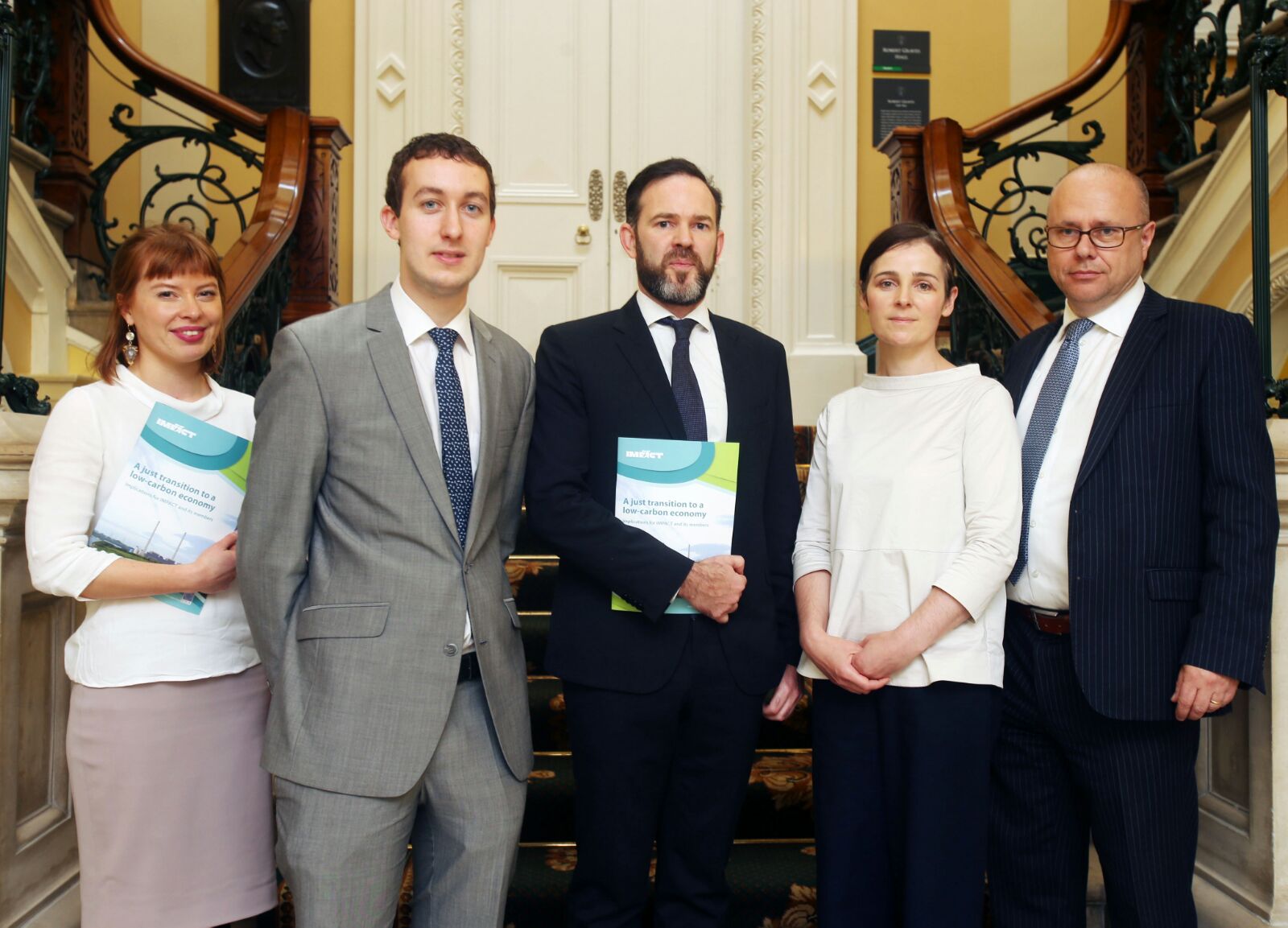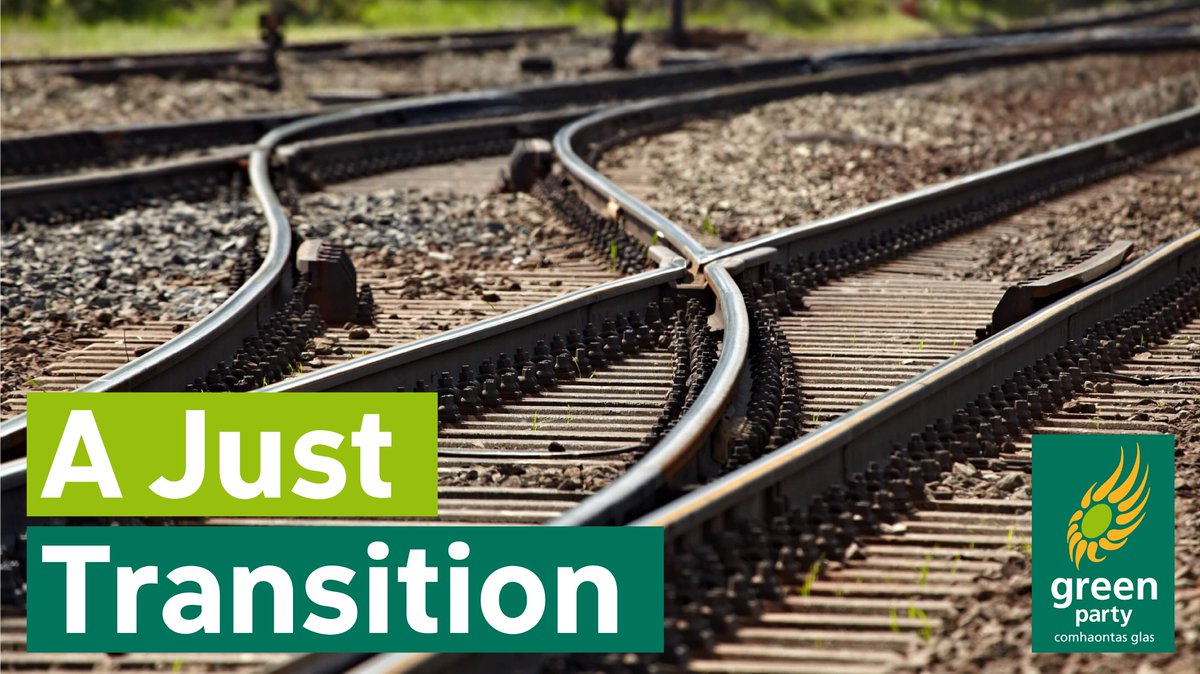Barriers to environmental justice ‘widespread’ across EU

December 3rd, 2018
Taking a legal challenge against environmentally damaging decisions is burdensome as barriers to justice are widespread across the EU, a report from Europe’s largest environmental network has found.
The European Union is respected as a global leader when it comes to protecting the environment, with over 650 pieces of legislation in force to protect habitats, air quality and a myriad of areas.
A new report from the European Environmental Bureau (EEB), however, finds that Member States are failing to ensure that citizens and environmental NGOs can challenge decisions in the courts.
The report identifies several key barriers to access to justice, including excessive costs, recommending that cost-capping measures are put in place, preferably through an EU-wide Directive.
The European Commission issued non-binding guidelines last year to Member States about their obligations to allow individuals and NGOs to bring environmental cases at the national level.
The Commission previously tried to bring in a Directive on Access to Justice in 2003, but it was blocked by Member States and later abandoned in 2014.
Costly legal challenges
The prohibitive cost of mounting a legal case is a key challenge in bringing environmental cases in Ireland, the Chief Justice said earlier this year.
Speaking at an environmental law seminar at the King’s Inns in July, Mr Justice Frank Clarke said that the issue of costs has been “one of Ireland’s great difficulties” in complying with its environmental obligations.
The European Commission’s Liam Cashman said that Ireland “stands out as really exceptional” within the EU due to the “cost risks” associated with taking a case to the courts.
If you create a “hostile cost environment”, Mr Cashman added, you can only realistically expect a “man or a woman of straw” or a one-shot NGO “ready for liquidation if things go wrong” to take up cases.
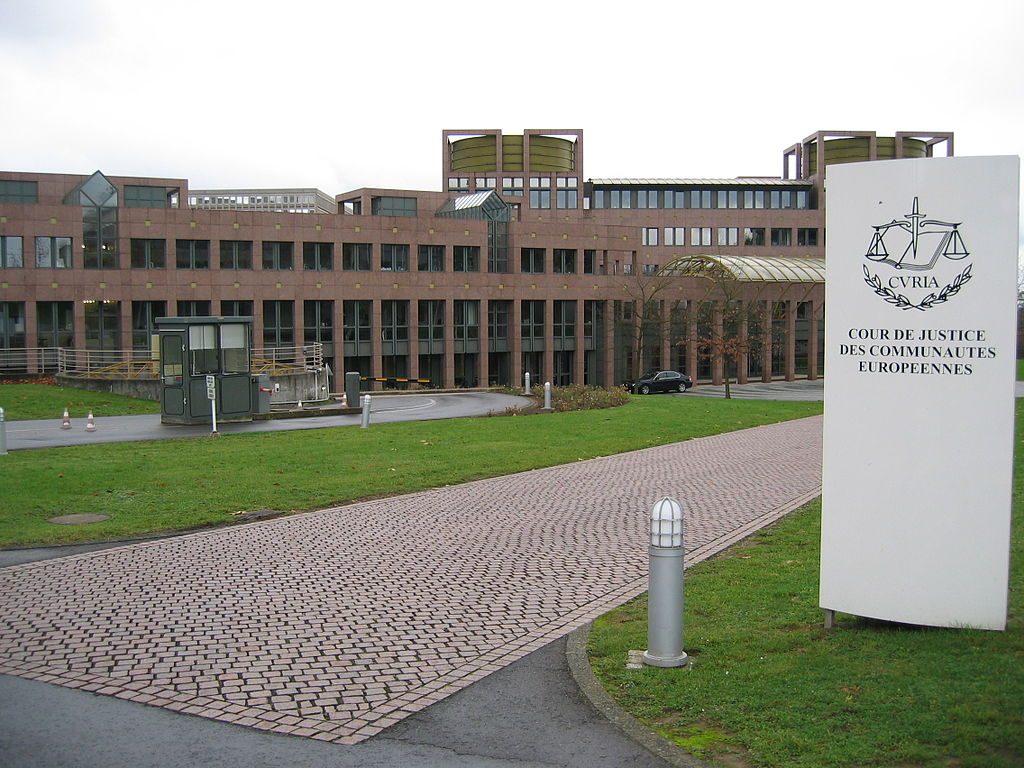
Cédric Puisney
Timely decisions needed
The report calls for timely decision making in environmental cases due to the potential for more harm to be done to the environment as cases make their way through the legal system.
In cases where there is an urgency to stop environmental harm, delays can mean that even where there may be a favourable court decision, the environmental damage will not be restored, the report states.
Earlier this month, the High Court adjourned injunction proceedings brought by the Environmental Protection Agency to halt unlicensed peat extraction at a Co Westmeath bog until at least March 2019.
The environmental watchdog was seeking the injunction following the discovery in September 2018 that Harte Peat is extracting wet peat up to five metres deep on 11 hectares (ha) at its Derrycrave site.
Niamh Hyland SC, counsel for the EPA, said that the activity needs to be halted pending the outcome of a case against Harte Peat for unlicensed peat harvesting and extraction dating back to 2013.
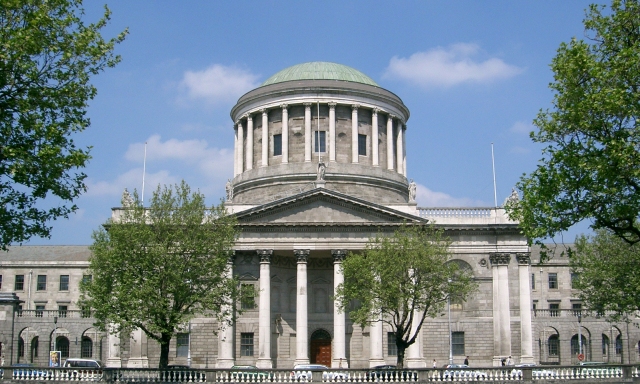
The Four Courts Building Photo: Gary Barber
Environmental court system
The EEB report also calls for States to follow the lead of China and India in setting up environmental courts where judges have the required scientific knowledge to hear environmental cases.
In the absence of dedicated courts, the EEB report calls for training for judges on environmental law and funding to increase capacity for judges to handle environmental cases, especially in the lower courts.
Francesca Carlsson, a legal officer at the EEB, said that NGOs must be able to continue to play their important role as watchdogs of Europe’s hard-won environmental protections.
“Time and again in Europe citizens have stood up to dangerous government decisions by challenging them in court,” she said.
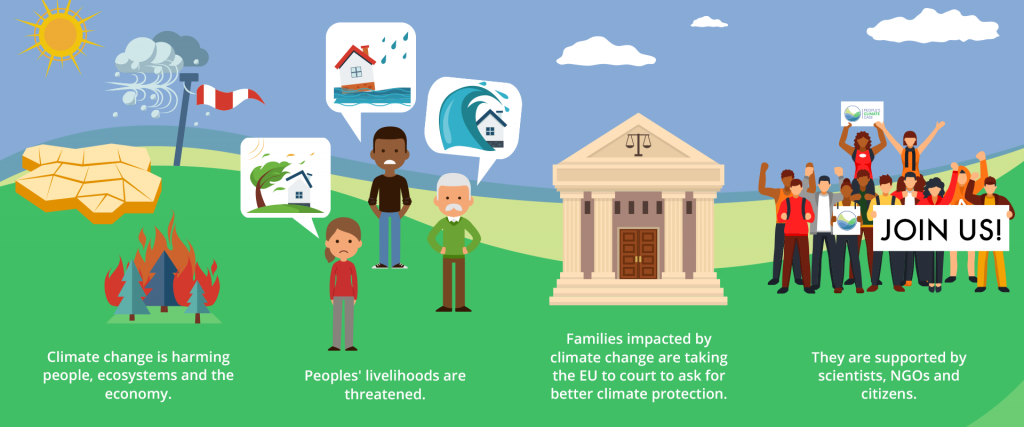
People’s Climate Case in Europe Graphic: Climate Action Network
Recent Irish cases
Friends of the Irish Environment is currently taking on the State in the courts, claiming that the National Mitigation Plan does not do enough to reduce Ireland’s emissions and violates Ireland’s Climate Action and Low Carbon Development Act 2015. The case is set to be heard in January 2019.
Earlier this month, the Supreme Court ruled that An Taisce is entitled to an order restraining the continued operation of an unauthorised quarry in Co Galway.
The case, taken by the environmental charity relates to the continued operation without planning permission of a quarry operated by McTigue Quarries Ltd near Tuam, Co Galway.
Last year, the High Court recognised for the first time the constitutional right of Irish people to an environment that is consistent with the human dignity and well-being of citizens.
The judgement was made in relation to another challenge by FiE against the decision to grant the Dublin Airport Authority a planning extension for the construction of a third runway at Dublin Airport.
In support of its case, the environmental group argued that the Irish constitution granted implicit environmental protections.
While dismissing FiE’s challenge, Mr Justice Barrett recognised for the first time a constitutional right to environmental protection “that is consistent with the human dignity and well-being of citizens at large”.
In his judgement, Mr Justice Barrett said that such a right “is an essential condition for the fulfilment of all human rights”.
“It is an indispensable existential right that is enjoyed universally, yet which is vested personally as a right that presents and can be seen always to have presented, and to enjoy protection, under Art. 40.3.1 of the Constitution. It is not so utopian a right that it can never be enforced,” the judgement continues.
[x_author title=”About the Author”]
